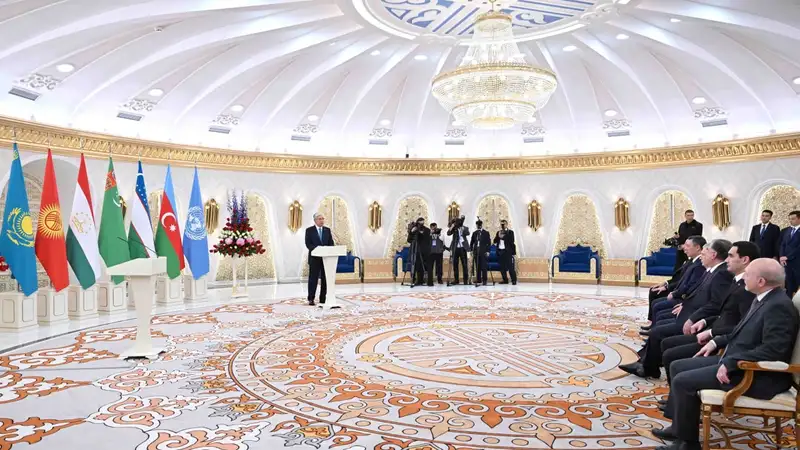ASTANA – The outcomes of the sixth consultative meeting of Central Asian heads of state on Aug. 9 highlight significant progress in cooperation among the countries, which are now poised to pursue a more proactive approach in transport, trade and agriculture, said Askar Nursha, deputy director of the Kazakhstan Institute of Strategic Studies (KazISS), in an interview with Zakon.kz news agency.

Photo credit: Akorda
“The Astana meeting shows that the Central Asians, developing and strengthening this format of interaction, are ready to move to a new stage of relations. It will be characterized by deepening regional cooperation and building a foundation for the activities of coordinating institutions, starting with specific areas in which all countries of the region are ready to work together,” Nursha told Zakon.kz.
According to him, consultative meetings play a key role in resetting regional relations and fostering a new, closer framework for cooperation.
“For such a vast region as Central Asia, the current level of cooperation and the volume of mutual trade is clearly insufficient. Therefore, there is an objective, pragmatic and rational interest of the region’s countries to increase economic ties. This task automatically implies the solution of a set of problems. They are related to transportation within the region and the development of transport corridors beyond its borders, as well as the creation of a barrier-free environment for cargo transportation, increasing traffic through checkpoints at the borders between the countries, and the settlement of water and energy issues,” said Nursha.
Cooperation in agriculture is another urgent priority. It includes filling the markets with food products, ensuring food security, and increasing the export capacity of the countries’ agro-industrial complex.
Nursha attributes the current breakthrough in cooperation to the collective efforts of all Central Asian leaders.
“Over the years of independence, each Central Asian country has made significant strides in nation-building and in the process of integrating into the global economy. But participation in regional processes qualitatively expands the available opportunities of these nations through unified and coordinated efforts. It strengthens the resilience of national economies against external crises and global economic challenges,” said Nursha.
“From this perspective, Central Asian cooperation can be seen as a crucial policy tool for the region’s countries to navigate and address the challenges of globalization,” he added.
The agenda for regional interaction has been gradually expanding since the first consultative meeting in Astana in 2018, according to Nursha.
“Economic ties between the countries in the region and political dialogue between their leaders are becoming more and more intensive. The discussion content is expanding, with new areas and topics being introduced, demonstrating the readiness of the countries to engage and find solutions within a five-party format,” he said.
“An important marker of progress on regional cooperation was a clearer delivery of the issues from the previous fifth Consultative Meeting, held in September 2023 in Dushanbe, on institutionalizing the ‘five’ format and appointing national coordinators from each country,” added Nursha.
